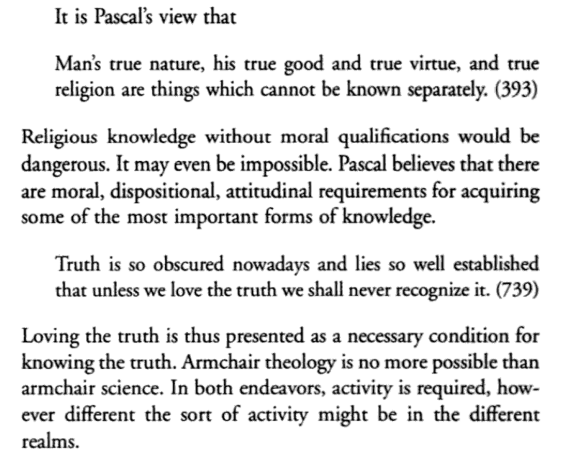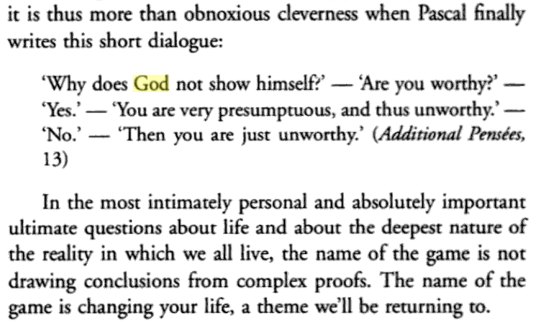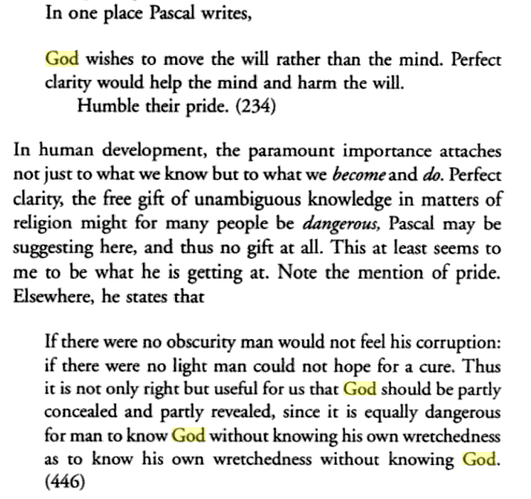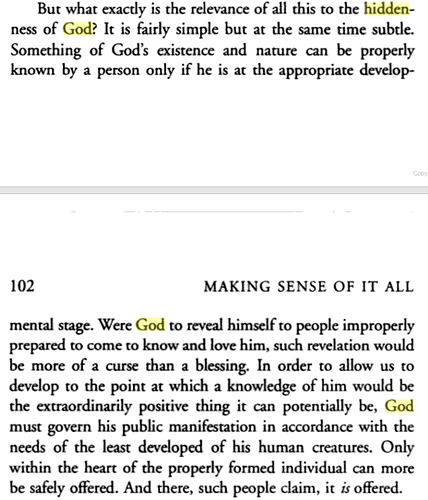I have been interested in Christianity since I was 18 and so far I been able to reconcile reason and faith. But a few days ago I have been having trouble with The Problem of Hiddenness more clearly J.L Schellenberg’s refined version. Basically the arguement is this, If there is a perfectly loving god
reasonable non-belief would not exist but it does and because of that a perfectly loving god doesn’t exist. It is a major problem for believers in a personal god and I was wondering if anyone could give me, or at least tell someone who can give me a good counter or show me a book that deals with this issue. Thank you to anyone willing to help a struggling beliver. My biggest answer is that god wants us to seek him out and believe in him through an act of free-will and not force or scare his us into being obedient to him. But some say that it really wouldn’t change anything if he did reveal himself and might even be better.
I don’t know if these would be helpful to you, but here are the resources BioLogos has published on the topic:
The best treatment that I’ve seen is a chapter called “The Hidden God” in Thomas V. Morris’s book, Making Sense of It All: Pascal and the Meaning of Life. You can read most of that chapter on the Google Books link above.
Basically, answers that fall back on the nature of God – that God is Spirit, that God is omnipresent, that God is transcendent – all fail for the simple reason that if God is a causal agent, he certainly could do something to make his presence more obvious. So why doesn’t he?
Here’s a start toward an answer:


If you want to invest the time Michael C. Rea addresses Schellenberg’s argument in The Hiddenness of God.
This is a great question. Presumably to me, the hiddenness is not necessary for development of will, as (even if allegorical), Adam and Eve had free will, yet were very aware of God, beyond a shadow of a doubt.
I don’t know why God remains hidden, especially as there is no evidence to me of a Fall that would cause such a thing (and a Fall that God would invoke on the descendants of those who offended Him would be unjust). I can only say that if God is, He is just; and does not hold us responsible for inability to believe, which I think frequently occurs. At the most basic level, babies can not understand words, let alone the concept of God’s existence. This extends to more complex reasons, such as the problem of evil, which, along with other very good arguments, casts the belief at least of a good God, into serious doubt…particularly if one has experienced or observed the suffering of loved ones.
Here is one of my favorite posts I have ever read on the Problem of Evil.
If you want a simple and effective way to identify a Christian apologist worth listening to, ask them to share their thoughts on the problem of evil. If they keep their discussion of the problem in the abstract and if they suggest that it is a problem easily solved, you should keep looking. But if they instead take the time to describe the agonizing depth and breadth of the problem, and if they recognize that the problem is such that some people reasonably find their way to non-belief, then that is likely an apologist worth heeding in other matters.
Thanks. Blessings.
No apologetic for God’s post Enlightenment hiddenness works. Including mine own that He cannot create glorious conscious beings directly or by evolution in the transcendent and that the physical therefore is the only spawning ground for the transcendent. As for any interference in the physical, once you start, where do you stop? The only intervention is incarnation.
Before the Enlightenment belief was easy. It still is for those who still live as if it never happened. The only possible Gideon’s fleece is the prophecies of The Book of Daniel picked up in Revelation. As per this chart which is the best bar none.
This topic was automatically closed 6 days after the last reply. New replies are no longer allowed.

